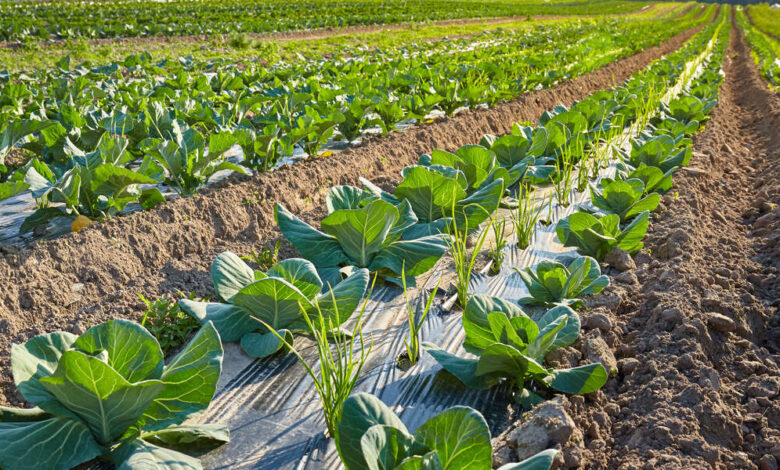Types of Plastic Used in the Farming Industry

Plastics have transformed farming by enhancing efficiency and productivity. Different types of plastic cater to diverse needs in the farming industry, from crop protection to storage solutions. By learning about these materials, farmers can make better choices for sustainability and functionality.
Polyethylene – Versatile and Essential
Polyethylene has become a staple in agriculture due to its flexibility and durability. One prominent application of polyethylene in the farm industry involves its use in making mulch film. Mulch film enhances soil temperature, retains moisture, and reduces weed growth, directly increasing crop yield. Beyond this, polyethylene is used in greenhouse coverings for better temperature control and UV protection, which enables year-round crop cultivation.
Additionally, polyethylene is lightweight yet tough, which makes it ideal for water storage tanks and irrigation pipes. These features allow it to withstand extreme weather conditions and heavy use.
Polypropylene – Strong and Lightweight
Polypropylene stands out due to its strength and lightweight nature, which makes it suitable for the creation of durable farming equipment. From grain storage bags to ropes used in horticulture, its wide range of uses highlights its functionality. Farmers value this plastic for its ability to resist chemicals and withstand prolonged exposure to the sun.
Further, polypropylene minimizes the risk of spoilage during produce storage. It maintains its integrity in harsh outdoor conditions and ensures crops and materials remain protected. This resilience boosts productivity and keeps operations running.
Polycarbonate – Clarity and Strength Combined
Polycarbonate is a favored plastic used in the farming industry for building greenhouses and skylights due to its transparency and impact resistance. It allows sunlight to penetrate while blocking harmful UV rays, which creates an excellent environment for plants. Its shatterproof qualities make it safer and longer lasting compared to glass.
Beyond greenhouses, polycarbonate is also used in cold frames and protective coverings for plants in harsh conditions. Its lightweight design and adaptability offer easy installation and maintenance.
PVC – Multipurpose and Dependable
PVC, or polyvinyl chloride, supports various agricultural needs, from pipeline systems to fencing. It stands out as a reliable material due to its resistance to water, chemicals, and corrosion. Many farmers prefer PVC pipes for effective irrigation solutions that last through multiple seasons.
PVC’s cost-effectiveness adds to its appeal, balancing durability and affordability for farming operations. This versatility allows it to serve as the primary material in creating durable structures and barriers on farms.
Polystyrene – Ideal for Seedlings
Polystyrene trays help farmers start seeds in a controlled, organized manner. These trays, which are lightweight and cost-effective, optimize plant growth during the seedling stage. They enable farmers to transplant young plants with ease and precision.
Additionally, polystyrene offers adequate insulation and protects young plants from temperature fluctuations. Farmers use this practical, reusable material to boost seedling survival rates and lower production costs.
Plastic use in farming has become indispensable, offering solutions that address common agricultural challenges. Materials like polyethylene and polycarbonate bring versatility, while others like PVC and polystyrene enhance specific processes. Each type of plastic supports productivity and sustainability in unique ways. Ultimately, the growing role of plastics in agriculture highlights farmers’ ability to adapt for optimal outcomes.





